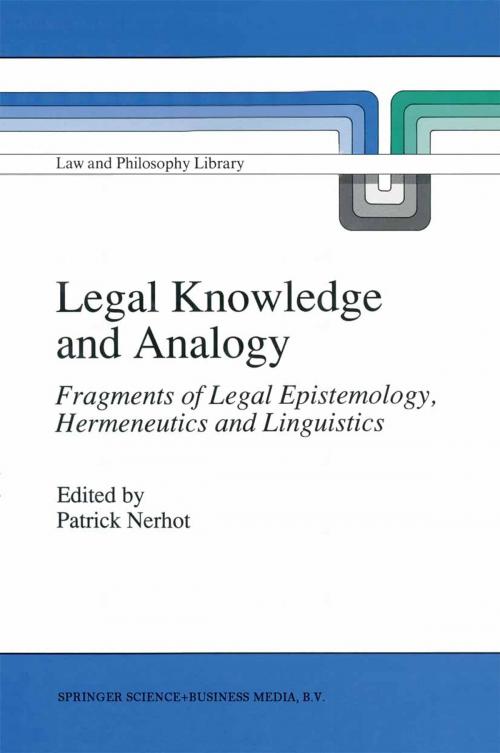Legal Knowledge and Analogy
Fragments of Legal Epistemology, Hermeneutics and Linguistics
Nonfiction, Religion & Spirituality, Philosophy, Reference, Epistemology, Reference & Language, Law| Author: | ISBN: | 9789401132602 | |
| Publisher: | Springer Netherlands | Publication: | December 6, 2012 |
| Imprint: | Springer | Language: | English |
| Author: | |
| ISBN: | 9789401132602 |
| Publisher: | Springer Netherlands |
| Publication: | December 6, 2012 |
| Imprint: | Springer |
| Language: | English |
3 of law as an object that has always already been there, systematic and com plete. Quite the contrary. Some, indeed practically all of us, reject this sort of epistemology of law, and where the hypothesis of the coherence of the legal universe is put forward, this is in order to define it in very noticeably different terms from those traditionally used in legal scholarly accounts. If this referent, the law presented as a full discourses, runs through all of the contributions, this is because reasoning by analogy has to be found its specific place within this legal culture. It is the place to locate the problem of "lacunae" in law, which at bottom allows our various contributions to be classified. With Zaccaria and Maris, the question of lacunae is accepted as such (this is, we might say, the "traditionalist" aspect of these two articles, which is counterbalanced by - keeping to the same terminology - "modernist" emphases, sometimes Dworkinian in nature), and becomes the backdrop for considerations of purely hermeneutic type, in Zaccaria, ex tended in Maris to the field of ethics. The papers from Lenoble and Jackson, the former philosophical and the latter semiological, take as their main tar get this legal knowledge where the theory of lacunae finds its place.
3 of law as an object that has always already been there, systematic and com plete. Quite the contrary. Some, indeed practically all of us, reject this sort of epistemology of law, and where the hypothesis of the coherence of the legal universe is put forward, this is in order to define it in very noticeably different terms from those traditionally used in legal scholarly accounts. If this referent, the law presented as a full discourses, runs through all of the contributions, this is because reasoning by analogy has to be found its specific place within this legal culture. It is the place to locate the problem of "lacunae" in law, which at bottom allows our various contributions to be classified. With Zaccaria and Maris, the question of lacunae is accepted as such (this is, we might say, the "traditionalist" aspect of these two articles, which is counterbalanced by - keeping to the same terminology - "modernist" emphases, sometimes Dworkinian in nature), and becomes the backdrop for considerations of purely hermeneutic type, in Zaccaria, ex tended in Maris to the field of ethics. The papers from Lenoble and Jackson, the former philosophical and the latter semiological, take as their main tar get this legal knowledge where the theory of lacunae finds its place.















